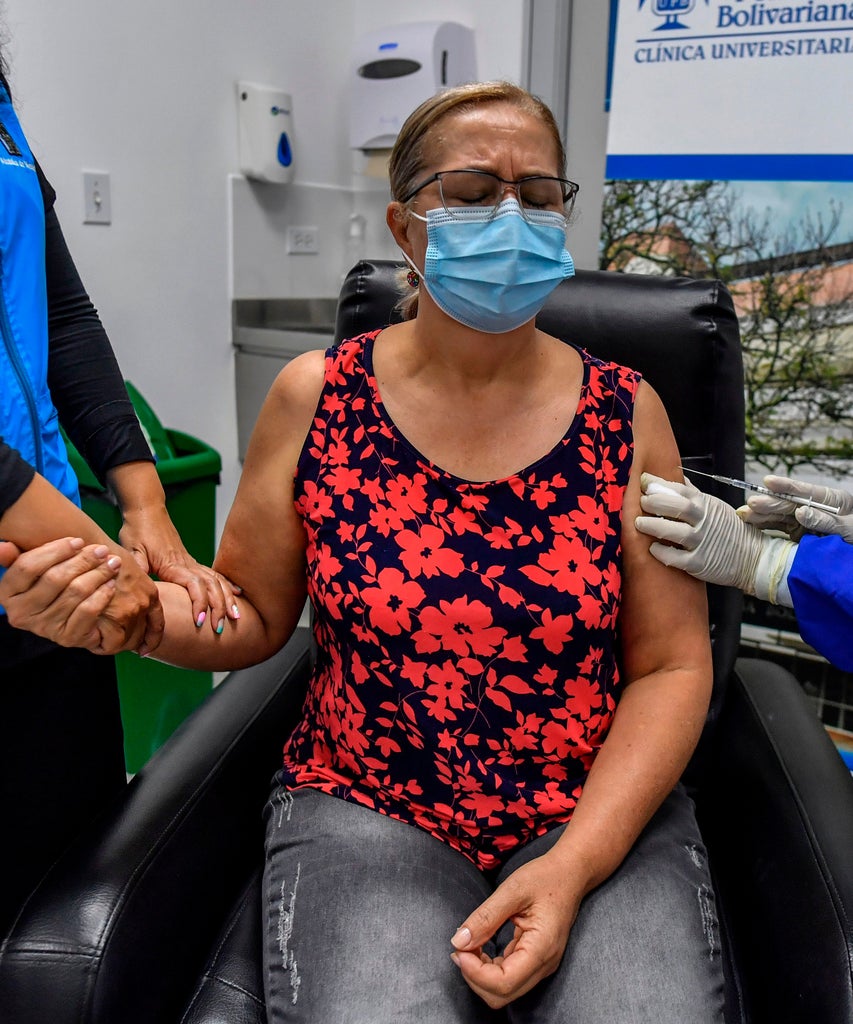
Right now, all Americans 16 and over are eligible to receive the coronavirus vaccine — something we’ve been looking forward to since the start of the pandemic last year. And now, it looks like the 12-15 age group will be eligible to get their jabs soon, too. But as millions line up to get vaccinated, healthcare workers and public officials are setting their sights on the roughly one-third of U.S. residents who say they’re not sure about the vaccine or don’t want to get it.
A UCLA survey that interviewed 75,000 people over 10 months found that 38% of respondents were worried about the side effects and 34% didn’t think the vaccine was safe. And among registered voters, one in four Americans said they do not plan to get any coronavirus vaccine.
It leaves many of us wondering: What can we do about it?
Findings from a Pew Research Center poll found that among respondents who said they were unlikely to get a vaccine, half agreed that they were willing to change their minds once there was more information or once other people were vaccinated first.
“No national ad campaign is ever going to be as effective…as people who look like you and come from your community saying: ‘This is important/ It’s the right thing for us,’” Kelly Moore, of the vaccine education group Immunization Action Coalition, told The Washington Post.
While no single message will be successful in convincing every vaccine-hesitant person, studies show that Moore’s claims are correct: A healthy dose of peer pressure is a successful way to get more people on board.
This positive peer pressure has already been leveraged by vaccine experts in the form of “I’m vaccinated” stickers and buttons, or encouraging people to post just-vaccinated pictures online to create a sense of solidarity. But a personal touch of hearing it from a friend or family member might be that much more effective for some.
Since vaccination rates began to plateau, medical experts have started to shift away from their previous goal of achieving rapid herd immunity to just getting as many people vaccinated as they can. Reports now say that herd immunity is farther off than we think — if even attainable with the waning vaccination rates.
However, others don’t see the vaccine reticence quite as dismally. Nobel laureate Abhijit Banerjee, a professor of economics at MIT, believes that the apprehension is normal. In fact, based on his own research and other findings, he believes that it is less about a hard-set ideological divide as much as it is about typical uncertainty around adopting new things.
“The feedback loop from some people taking it to other people taking it is always a critical part of adoption of new, general technologies,” Banerjee told Business Insider. “There are people who will wait until others take it, before taking it.” With the release of new technology, there are early adopters and there are those who wait to see how it goes. Banerjee believes that vaccination efforts will take on a similar progression. But the good news is that people can be convinced — it just takes a community-wide willingness to push that effort forward.
Last month, the Centers for Disease Control and Prevention (CDC) shared a guide for how to speak to family and friends about getting vaccinated. It suggests listening to their questions with empathy, asking open-ended questions, asking for permission before sharing vaccine information, helping them find their own reason to get vaccinated, and doing what you can to help them make and get to a vaccination appointment should they decide to get one. It also touches on debunking myths and concerns around highly unlikely occurrences, like blood clots, or other anti-vax talking points that have become more and more prevalent in the mainstream.
There is currently no published study specifically showing the overall effectiveness of peer pressure as a tactic to get others vaccinated, but statistics do show that this type of information-sharing can at least be an effective way to help others feel more comfortable with the vaccine. It’s up to the individual to actually make the appointment and show up, but a conversation, a post, or a story about your vaccine experience could mean we’re a step — or many steps — closer to returning to normalcy.
Like what you see? How about some more R29 goodness, right here?
Why Won't The U.S. Lift COVID Vaccine Patents?
How Much Does It Take To Change Anti-Vaxxers?
Here's How To Manage Your Vaccine Side Effects
from Refinery29 https://ift.tt/3ej6yY4
via IFTTT

